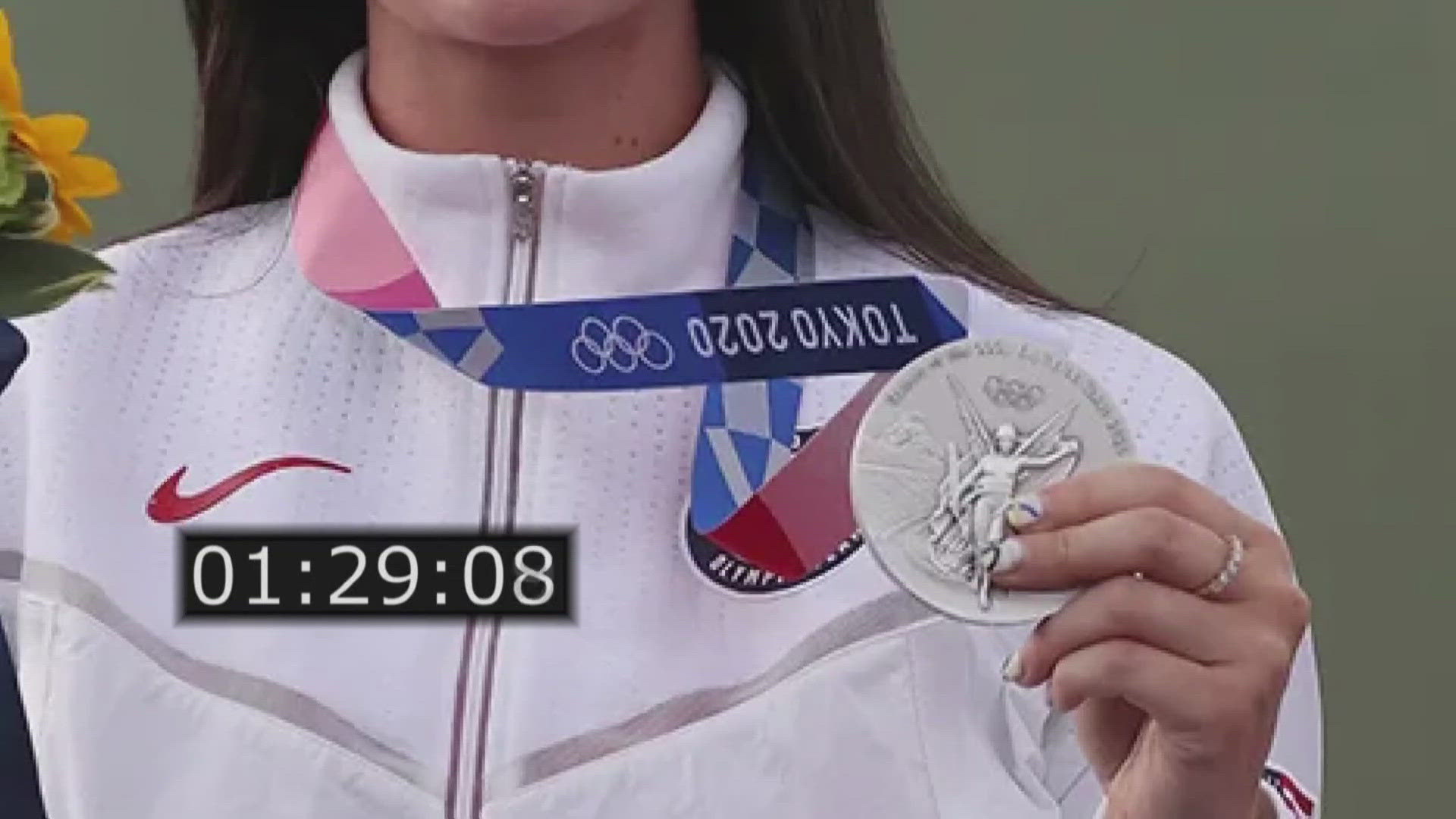JACKSONVILLE, Fla. — One second. It's one of the most minute measurements of time, but one second can have a lifetime of impact on an athlete.
One second can be the difference between standing atop the medal stand and not even qualifying for a race.
The value of a second is priceless.
From the pool, to the track and quite frankly every event at the Olympics, entire livelihoods in sports and business are tied into the science of maximizing every second and being precise in how one second is measured.
Far from any fields, tracks or athletic surfaces, timing is down to a science.
"I had to go through extensive training in 2018 and testing to verify that my workmanship met the standard that Rolex set for their product," said Justin Shiver, a watchmaker at Underwood Jewelers in Jacksonville.
Shiver has been in the industry for 27 years. Painstaking attention to detail is required well before the minuscule pieces are put back in the watch to ensure it measures 1 second exactly as 1 second.
"Surgically clean is what the goal is because the smallest imperfection can have a negative effect when we get through with the lubrication and we start the timing process," said Shiver.
Swimming is measured down to the 1/100th of a second. Bolles head coach Peter VerHoef has it down to a science.
"We teach our swimmers you want to try to dive through a single hole in the water as if it was the size of a drinking straw," said VerHoef, "when you're in the water, because that drag coefficient is so high and the density of the water is so high compared to the air, any small movement outside of a tight streamlined position is going to cause a decrease in velocity."
Science translates to the track as well, just as St. Johns Striders coach Ricky Fields.
"We use a lot of data, we don't guess, we kind of know what you're going to run in the meet because you run in it practice," said Fields.
But what about away from the starting gun? Dawn Grant is a mental trainer who has worked with a variety of athletes including the silver medalist in trap shooting at the 2020 Olympics.
"It's not the mechanics that start to fail, it's what's happening in their mind," said Grant, "one of the biggest issues is focus, there's also issues with confidence and overthinking and over analyzing and trying too hard. To have a good mental game they need to be in that moment and give the mind something specific to do that's productive."
Back on the work bench, a machine counts off the seconds to help guide supreme accuracy.
"As a watch maker, when I'm servicing them, I want perfection, that's our goal, perfection," said Shiver.
And maximizing every second, perfection, could result in gold.

